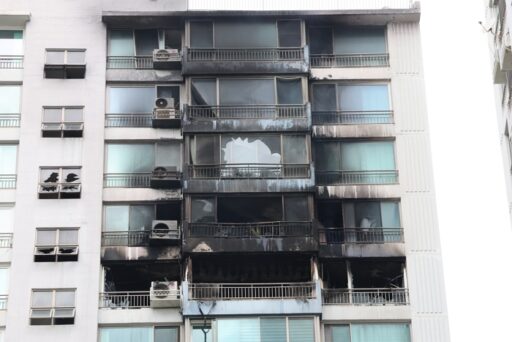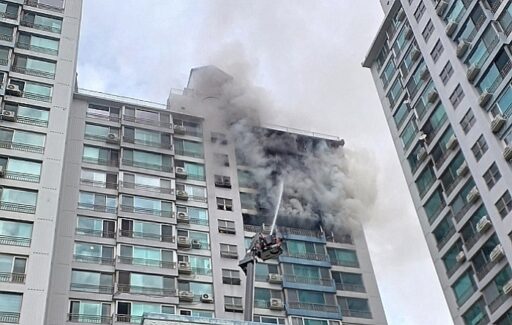Battery Explosion Suspected Statement
On the holiday yesterday (17th), a fire broke out in an apartment in Changjeon-dong, Mapo-gu, Seoul, resulting in the deaths of 2 people and injuries to 13 others. Police and fire authorities are leaning towards the possibility that the fire was caused by an explosion of a battery from an electric scooter that was charging.
The fire started around 8:10 AM on the 14th floor of a 20-story apartment building on the 17th. A man in his 20s and a woman in her 60s died in the incident. The son was pronounced dead at the scene, while the mother was transported to the hospital after receiving cardiopulmonary resuscitation (CPR), but ultimately passed away. The husband, who lived with them, suffered burns and is receiving treatment.

Assumed 'Thermal Runaway' Phenomenon
Based on the testimony from the bereaved family that "the battery that was charging in the son's room exploded," police plan to conduct a joint investigation on the 18th at 10 AM.
The family testified, "The fire surged like oil had been poured, and it spread rapidly accompanied by successive explosion sounds." There were also reports from residents that they heard several loud explosion noises.
The police are paying attention to the possibility of 'thermal runaway,' where a heat reaction in lithium-ion batteries occurs in a chain reaction. Experts explain that in such cases, the internal temperature can soar to 1,000 degrees Celsius in just a few seconds, leading to an uncontrollable state.
'Blind Spots' in Sprinkler Installation

The fire was completely extinguished around 10:42 AM. Firefighters deployed 79 vehicles and 252 personnel to combat the fire, and during the process, 89 residents were evacuated. However, it is suspected that the absence of a sprinkler system on the 14th floor where the fire broke out exacerbated the damage.
This apartment complex was completed in 1998. At that time, the law mandated that sprinkler systems be installed only in high-rise residential buildings of 16 floors or more, leaving the 14th floor exempt from regulations.
According to National Assembly data, it was confirmed that among 44,208 aging apartment complexes built before 2004, 65% do not have sprinkler systems. It wasn't until after 2004 that the obligation to install them was applied to all apartments of 11 floors or more.


